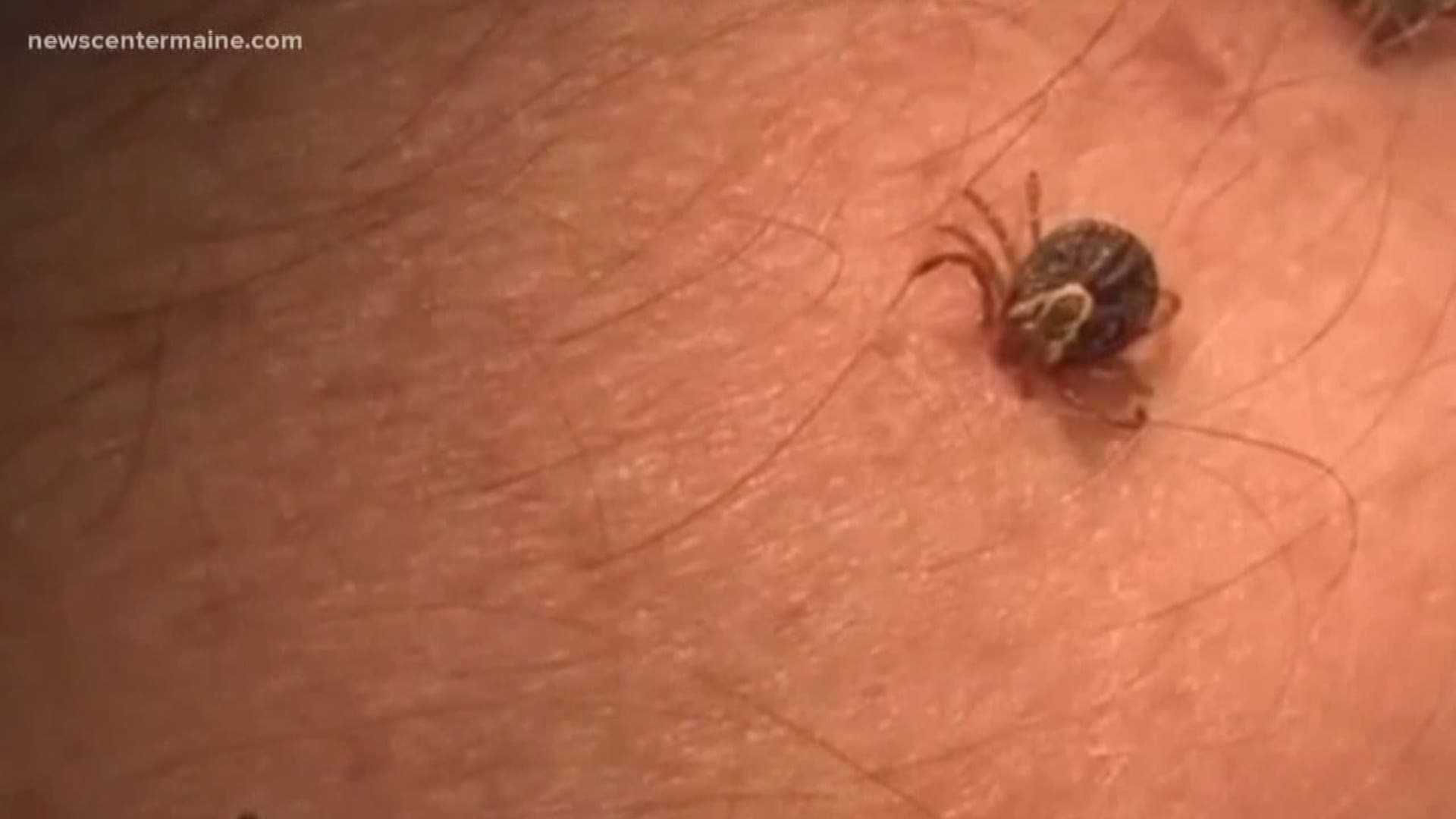CUMBERLAND, Maine — Chris Philbrook and his daughter Lilly never go on a hike before doing this.
'Pull your socks over your pants."
This helps prevent deer ticks from jumping and crawling up underneath Lilly's clothes. They always wear long sleeves and pants before heading out onto their favorite hiking trail.
When outdoors, Chris and his 8-year-old try to avoid high grass, leaf piles -- places where ticks love to hang out. After they wrap up their hike, Lilly shakes out her pants and checks her sleeves.
Chris checks other areas Lilly might miss -- her waist and the back of her neck. When they get home, it's up the stairs to her room to do a thorough check.
The CDC says hot spots include under the arms, behind the knees, in and around the ears, in the belly button, and between the toes. Chris also puts the clothes exposed to the woods right into the dryer.
Lilly then heads into the shower to wash any ticks they may have missed. Chris taught her to do a full body check, which includes her private areas. Then another check to make sure ticks or nymphs -- which look like moving poppy seeds -- aren't on Lilly's scalp.
The process may seem tedious, but it's an important part of this family's daily routine. Ten years ago, Chris was bitten by a deer tick. That bite caused a condition called Bell's Palsy. The muscles on the left side of his face became weak and partially paralyzed -- he still can't feel part of his face. One thing he does not use on his daughter is repellent containing DEET.
'"I am fine with it being on her shoes or her pants, but I would never want to put it on her skin," said Philbrook.
Pediatrician Dr. Emily Wesolowski says she gets a lot of questions from parents using repellents on their kids. Evidence has shown that DEET is safe when used as directed, but she doesn't advise parents to use DEET on their kids.
"Parents are hesitant about putting chemicals on their children's skin. I understand that. (Use) the long clothing, tucking pants into socks, spraying clothing with DEET, and tick checks," said Dr. Wesolowski.
Experts say teaching your kids early to look for ticks on their bodies is one the best lines of defense against Lyme and other tick-borne illness. As for Chris -- living with the long-term effects of Lyme disease helps him to keep his daughter on guard.
For more information about deer ticks and Lyme disease, click here.
Read the CDC's guidelines about repellents here.

